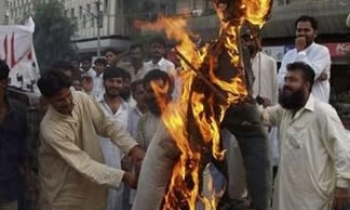NEW YORK (Reuters) - A reporter for The New York Times came under sharp criticism in the pages of her own newspaper on Saturday, over her conduct related to a probe into the outing of a CIA operative.
The Times' executive editor was quoted in the paper as saying reporter Judith Miller appeared to have misled it about her role in the controversy, and a top columnist suggested the Times' reputation would be endangered if she returned from leave to her old job.
"If that were to happen, the institution most in danger would be the newspaper in your hands," columnist Maureen Dowd wrote in the Times, one of the most influential U.S. newspapers.
The criticism contrasts with the paper's solid support for Miller as she spent 85 days in jail rather than testify before a grand jury, and it comes days before possible indictments of White House officials in the leak case.
Prosecutors are investigating who leaked the identity of CIA operative Valerie Plame to the media after her diplomat husband, Joseph Wilson, accused the administration of U.S. President George W. Bush of twisting intelligence on Iraq.
The Times quoted executive editor Bill Keller as saying, in a memo to staff on Friday, that Miller "seems to have misled" the newspaper about being on the "receiving end of the anti-Wilson whisper campaign."
Keller said he wished he had insisted, once Miller had been subpoenaed as a witness in the case, on learning more about her role.
He also said if he had known the details of her "entanglement" with a senior White House aide whose identity she fought to protect, he may have been more willing to explore a compromise and would have taken more care in voicing the newspaper's defense.
"COMING CLEAN"
Furthermore, Keller said the Times had been hurt by delays in "coming clean" over lapses in its reporting that supported U.S. allegations of Iraqi weapons of mass destruction, much of which was written by Miller.
In a response written to Keller, Miller denied that she had misled the paper and said she had "no personal, social or other relationship (with the aide) except as a source." The Times quoted her as saying Keller's charges were "seriously inaccurate."
Tom Rosenstiel, director of the Washington-based Project for Excellence in Journalism, said the criticism is a positive sign from a newspaper still trying to recover from an earlier scandal over reporter Jayson Blair's fabrication of numerous stories.
"It's turmoil and it looks like a crisis, but it's a sign of how healthy journalistic values still are in the New York Times," he said.
Dowd echoed other critics' contentions that Miller's jail stint could have been in part a career-rehabilitation move after the Iraqi-weapons stories, which turned out to be based on faulty information supplied by Iraqi exiles.
"Sorely in need of a tight editorial leash, she was kept on no leash at all, and that has hurt this paper and its trust with readers," Dowd wrote.
Rosenstiel said Miller greatly hurt her reputation.
"The paper is going to have to weigh what is required for her to do to be a credible byline in the Times," he said.
Miller's lawyer called for an end to the criticism. "I don't think she's been treated fairly and it looks to me like a lot of people are trying to settle old scores," Robert Bennett told the newspaper industry journal Editor & Publisher this week.









